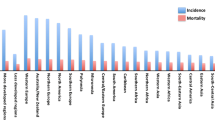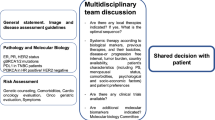Abstract
In the US, 1 in 3 women and 1 in 2 men will be diagnosed with cancer at some point in their lives. More than 1.2 million individuals are diagnosed with cancer each year while it is estimated that 8.2 million Americans, alive today, have a history of cancer. Cancer diagnosis and treatment accounts for approximately 20% of all healthcare expenditures; this is estimated to be as high as 25% in the year 2010. Rising costs are a result of an aging population, environmental factors, and medical advances.
New cancer technologies are abundant and consistent with patient requirements for easy access, close-to-home treatment and preference for outpatient care. These advances in cancer treatment include over 200 new cancer drugs which will lead to better approaches to prevention, detection and treatment of cancer.
Change is required to improve quality and outcomes and to manage cost. These factors make disease management the new approach charged with the responsibility of containing healthcare costs while addressing the consumer needs for a more responsive delivery system.
Disease management is ideally structured to deal with the myriad of issues in treating patients with cancer. There are many ways to approach cancer disease management, and a template is suggested as a starting point. Challenges are identified to the implementation of oncology disease management. Disease management offers a multitude of advantages for increasing efficiency, reducing costs, reducing variability and improving healthcare quality for patients.
Similar content being viewed by others
References
1999 Directions: looking ahead in healthcare. Manasquan (NJ): Health Resources Publishing, 1999: 2
Troy TN. The strength and success of unity. Managed healthcare. Duluth (MN): Advanstar Healthcare Publications, 1999 Aug; 8 (8)
Burns J. Employers are looking beyond simple cost control. Managed healthcare. Duluth (MN): Advanstar Healthcare Publications, 1999 Mar; 9 (3)
American Cancer Society. Cancer facts and figures — 1999. New York (NY): American Cancer Society, 1999 Jan
American Cancer Society. Cancer Facts and Figures — 1997. New York (NY): American Cancer Society, 1997 Jan
Business & Health Special Report. Living, coping and working with cancer. Montvale (NJ): Medical Economics, 1999
Matthews MS, editor. The managed care yearbook. 4th ed. Manasquan (NJ): The Managed Care Information Center, 1998
Giles K. Oncology issues. Rockville (MD): Association of Community Cancer Centers, 1996 May/Jun: 14–7
Author information
Authors and Affiliations
Corresponding author
Rights and permissions
About this article
Cite this article
Regan, M. Cancer and Disease Management. Dis-Manage-Health-Outcomes 6, 203–211 (1999). https://doi.org/10.2165/00115677-199906040-00003
Published:
Issue Date:
DOI: https://doi.org/10.2165/00115677-199906040-00003




